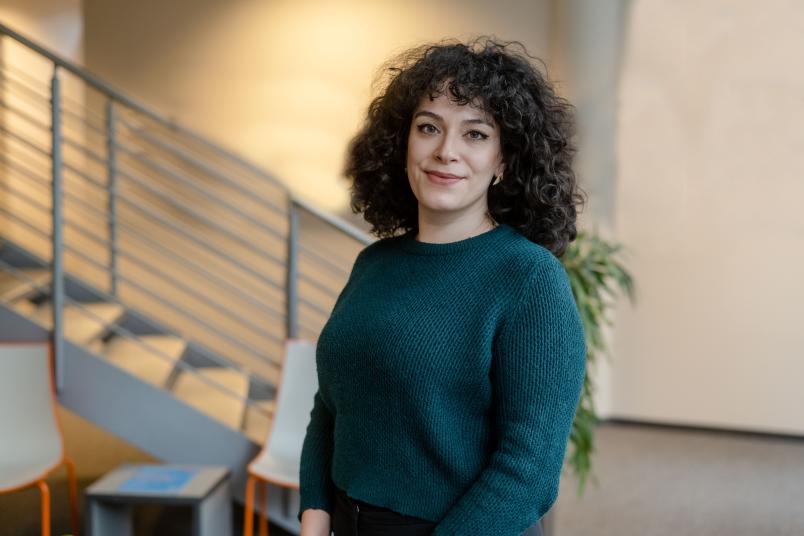
Earthquakes in Turkey and Syria
“This is hard to bear”
Beray Macit talks about how she copes with her own feeling of helplessness and about the psychotherapeutic counselling available to people in the earthquake zones.
Beray Macit has close ties with Turkey. The licensed behavioural therapist is pursuing her PhD about exposure therapy at the chair of Clinical Psychology and Psychotherapy at Ruhr University Bochum. As an anxiety researcher and psychotherapist, she is aware of the long-term mental strain of such traumatic events and knows about counselling services – including those available to people here on campus.
Beray Macit, how are you personally experiencing the situation right now?
It’s a tragedy. I can’t put it into words, I am speechless. It hurts my heart. I’m lucky that my contacts in Turkey are fine. A friend of mine lost his entire extended family. When I’m asked, I’m almost ashamed to say that my relatives are fine. Because the relatives of others are not fine at all, they have died or are still missing.
I also catch myself being distracted and unfocused all the time. And I keep watching the photos and videos from the earthquake zones. Like of the baby that was rescued alive after more than 100 hours – what a miracle! Or of children helping to unload and distribute relief supplies – it breaks my heart.
It’s been a week since the earthquake. Unfortunately, I don’t have much hope that they’ll find many more survivors. I almost expect that eventually a million people will be recovered dead – many of them impossible to identify. These people will then be buried under a number and without a name. This is hard to bear.
I try to step back from the photos and videos, but I can’t. I feel helpless and powerless. And I’m not the only one who feels this way. The solidarity within the Turkish community in Germany is strong. However, what we don’t sense is compassion from the rest of society – regardless of whether we still have relatives and friends in the regions or not. We feel left alone and helpless with our grief.
What can we do against the feeling of helplessness, how can we help?
Most importantly: donate money! To Ahbap, for example, a very active, trustworthy NGO in Turkey. People have lost their homes, it’s necessary to rebuild towns and schools. This, too, will require donations in the long term. As well as psychotherapeutic services.
The basic needs must be met first, of course – food, drink, a safe roof over their heads. Only then – if at all – can the self-healing process begin. Trauma therapy is not something you provide immediately after such an event. And not everyone develops post-traumatic stress disorder (PTSD) after such a traumatic experience. Many manage to process the events on their own and show no symptoms. Others simply can’t sleep any more. Still others develop depression or anxiety disorders, for example panic disorder – it varies from person to person. This is why counselling services must be just as personalised. It’s important to signal to people who are directly and indirectly affected that they are not alone and that you are there if they want to talk about it – without pushing them to do so.
Has it already been considered how to help these people from here?
My idea is to organise and offer therapy services online in the form of group therapies from here. I still need colleagues to help me with this. In order for this to happen, a stable primary care system for the earthquake victims must be in place, and there must be internet access in the area. All this will take time.
And we mustn’t forget that here in Germany many people have relatives and friends in the disaster areas from whom they haven’t heard or whom they may have lost. The crisis services offered by the Treatment Center for Psychotherapy provide readily available counselling. In these crisis counselling sessions, the aim is to quickly identify symptoms, to examine treatment options and to achieve initial stabilisation.